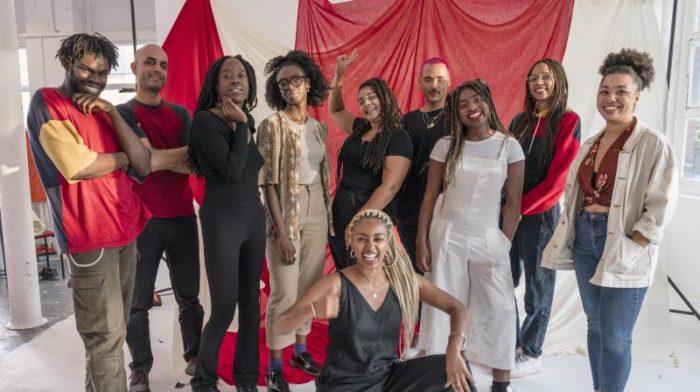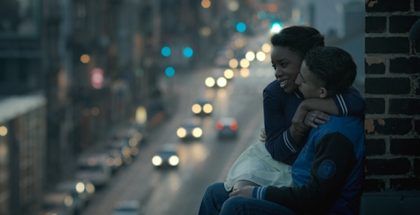Channel 4 lines up online shorts for Black History Month
David Farnor | On 11, Oct 2019
This October Channel 4 will mark Black History Month with a season of documentaries and films, from seminal game-changers and fascinating histories to visions for the future.
Part of this celebration will be an online platform for young talent: six new short films from black directors, on the theme of ‘Black Britain’, have been commissioned by Random Acts and will be released on the Random Acts YouTube channel.
Dark Matter is an experimental science documentary built on a powerful racial metaphor, from award-winning director and Random Acts alumnus Adeyemi Michael. The Muse (Anna Fearon) is an intimate portrait of how women and non binary people of colour see themselves. The Gift (Dumas Haddad) takes a surreal step back in time to 2003 to excavate grime: its roots and origins, before it became a commercial cash cow. Ajamu: Joyful Insurrection (Stephen Isaac Wilson) looks at how queer photographer and artist Ajamu x has explored black gay kink and sexuality, and subversive intimacy, since the ’80s. Everything Feels Like Water (Theresa Lola) attacks the subject of mental illness through music and visual metaphor. Wither (Antoine Marc) uses dance to explore the ever-evolving state of being that defines who we are.
gal-dem, the online platform dedicated to the stories of women and non-binary people of colour, will also be reaching into the Channel 4 archive to curate a Black British History collection. The six selected titles, which each have something to say about the black British experience, are: Desmond’s (1989), Just like Mohicans (1985), Justice for Joy (1995), The Event: How Racist Are You (2009), Chewing Gum (2015) and Black Lesbian Handbook (2015). To accompany each selection, individuals from the gal-dem community will also author six new short films, in conversation with someone related to the original programme.
gal-dem say: “By bringing the archive titles into the present tense we aim to raise important questions about how far we’ve come in 2019. These questions include, but are not limited to: Who has the Windrush scandal ignored? Who owns queer? Would the black British experience be any different without church? Does British TV really represent Black people? Why are white people so committed to the idea of white superiority? Can onscreen stereotypes ever be a force for good?”
With the black experience stretching beyond borders, Warrior Women with Lupita Nyong’o (a working title) sees the Oscar-winning actor journey across Benin, West Africa to uncover the remarkable story of the ‘Agoji’ – or as Europeans labelled them, the ‘Amazons’. These were warrior women, in armies up to 4,000 strong, who fought African and European powers alike from the 17th to the 19th centuries in the Kingdom of Dahomey (modern day Benin).
Coinciding with these new works will be the network premieres on Channel 4 of four films by black filmmakers: Barry Jenkins’s Oscar-winning Moonlight (2016), Jordan Peele’s Get Out (2017), Denzel Washington’s Fences (2016) and Wanuri Kahiu’s Rafiki (2018). Meanwhile, on Film4 there will be premieres of two distinctive film festival favourites from 2018 – Night Comes On, an emotional drama featuring rising star Darlene Fishback as an African-American teenager dealing with intense family issues following her release from a juvenile detention centre; and the impressionistic documentary Black Mother, a personal spiritual exploration of the heart and history of Jamaica from artist and filmmaker Khalik Allah. The channel will also screen some key titles from the Film4 library: debbie tucker green’s Second Coming starring Idris Elba, and Babymother, an iconic feminist musical set in the world of British Caribbean dancehall culture.
Fatima Salaria, Head of Specialist Factual, says: “We have an amazing line up of shows – from the authentic voice of gal-dem to exciting new talents coming through our Random Acts strand to the fascinating journey undertaken by Lupita Nyong’o, one of the world’s most high profile actors. This is content which provides a lens for the entire nation of what it means, not just to be ‘black British’, but to be British today.”

















